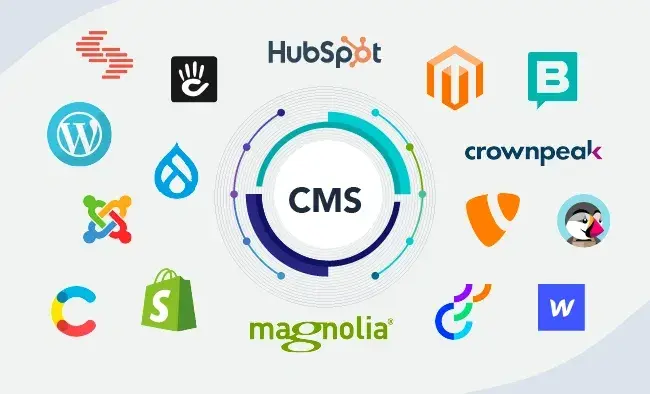Choosing a Platform for Your Website: What to Consider
Creating a website is a crucial step for any business, brand, or project. One of the key decisions in the initial development stage is selecting the right platform to build your site on. The right platform can help you achieve your business goals, while a poor choice might complicate your growth. Let’s explore the key factors to consider when choosing a platform for your website.

1. Type of Website and Functionality
The first thing to consider is the type of website you plan to create. Different platforms are designed for different purposes:
- Corporate website or blog: If you need a simple business card website or a blog, platforms like WordPress or Wix offer a wide range of templates and plugins for a quick launch.
- E-commerce store: For building an online store, specialized platforms like Shopify or WooCommerce provide flexibility in managing products, integrating payment systems, and supporting customers.
- Complex web applications: If your project requires unique solutions and advanced customizations, consider frameworks like Laravel or Django, or platforms like Webflow, which offer more control over the code.
2. Ease of Use and Scalability
It’s essential to consider how easy it will be to use your chosen platform in the long run. Even if you have development experience, the platform should be easy to update and expand:
- Ease of content management: Content management systems (CMS) like WordPress or Joomla provide intuitive admin panels, making it easy to add new pages, edit text, and images without needing a developer.
- Scalability: Think about future growth. The platform should support scaling your website both in terms of content volume and traffic. For larger projects, consider platforms that offer high performance under heavy load, such as Magento or Drupal.
3. Security
Cybersecurity is one of the key concerns in web development. Regardless of the size of your website, it must be protected from attacks and data breaches:
- Support for regular updates: Choose platforms that have active support and frequent updates to protect against new threats. For example, WordPress has a large developer community that continually improves the system.
- Security tools: Some platforms offer built-in security features such as SSL certificates, two-factor authentication, and automated backups. For e-commerce sites, this is especially important due to the handling of sensitive customer information.
4. Cost
Budget is one of the determining factors when choosing a platform. Consider both the initial development cost and the ongoing maintenance expenses:
- Free and paid platforms: Some platforms, like WordPress, are free but require spending on hosting, plugins, or themes. Others, like Shopify, have monthly plans with additional paid options.
- Maintenance and update costs: Consider the costs of technical support, adding new features, and updating your website. Platforms with a wide range of built-in tools may reduce the need for additional development.
5. SEO Optimization and Performance
To attract visitors via search engines, it’s essential that the platform supports SEO tools:
- SEO capabilities: It’s important that the platform allows easy customization of meta tags, URLs, sitemaps, and other SEO settings. WordPress, for example, offers many plugins for site optimization.
- Site performance: Page load speed affects both user experience and search engine rankings. Therefore, the platform must provide high performance, especially under peak loads.
Conclusion
Choosing the right platform for your website is a strategic decision that will affect the entire process of its creation and future development. Consider the type of website, functionality, budget, security, and scalability needs. When making your decision, focus on the long-term goals of your business to ensure the efficient and secure operation of your website.

